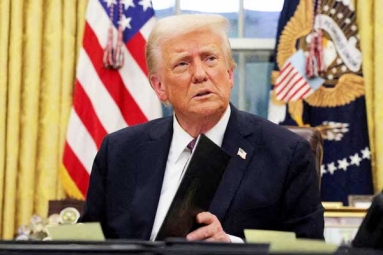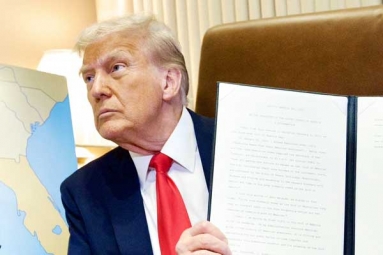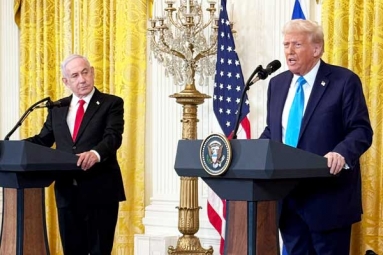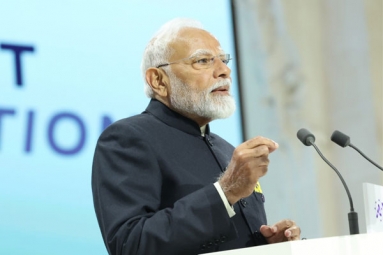
(Image source from: The Indian Express)
The prominent Indian American lawyer Neomi Jehangir Rao (45) has been sworn in as the United States Circuit Judge for the powerful District of Columbia Circuit Court of Appeals, replacing the controversial Justice Brett Kavanaugh.
Joined by her husband Alan Lefkowitz, Rao took oath on a bible in the U.S. Supreme Court Justice Clarence Thomas in the Roosevelt Room of the White House on Tuesday.
According to a White House schedule, President Donald Trump had participated in the swearing-in ceremony.
Born in Detroit to Parsi physicians from India, Zerin Rao and Jehangir Narioshang Rao, Neomi Rao is the second Indian American after Sri Srinivasan to be part of the powerful court said to be next only to the U.S. Supreme Court.
Nominated by President Donald Trump last November, Rao was confirmed by the Senate earlier this week by 53-46 votes. In her previous role as the Administrator of the Office of Information and Regulatory Affairs (OIRA) of the Office of Management and Budget, she played a key role in regulatory reform.
Her confirmation and swearing-in for the prestigious court have been a low key affair for the Indian American community.
Prior to her service as OIRA Administrator, Rao was a professor of structural constitutional law, administrative law, and legislation and statutory interpretation at the Antonin Scalia Law School at George Mason University.
She founded the Law School's Centre for the Study of the Administrative State and focused her scholarship on the constitutional and political accountability of administrative agencies and the role of Congress.
Including Associate Counsel and Special Assistant to President George W. Bush, she has served in all three branches of government. She also served as counsel to the Senate Committee on the Judiciary, where she was accountable for judicial nominations and constitutional law issues.
Amid her service in government, Rao practised in the London office of Clifford Chance LLP, specializing in international law and commercial arbitration.
By Sowmya Sangam

















